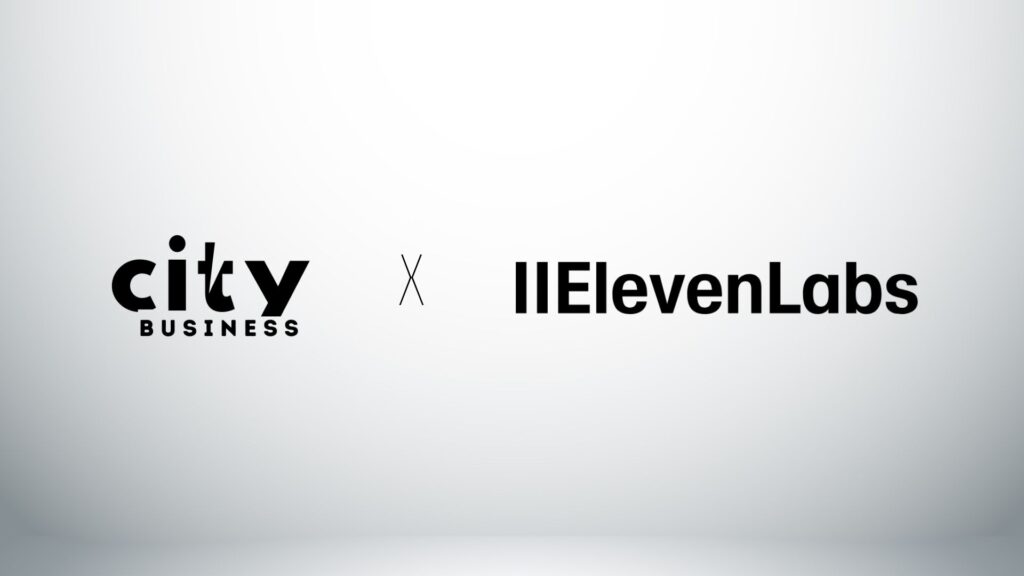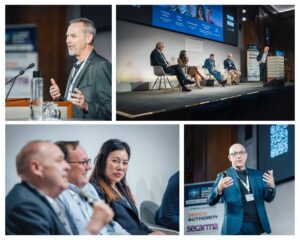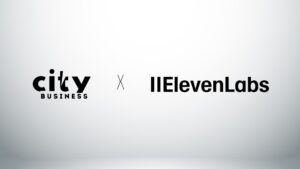City Business Secures ElevenLabs Grant to Advance AI Infrastructure for Planning and Built Environments

City Business (CBAI), a fast-rising player in AI infrastructure for the built environment, has announced it has been awarded a prestigious ElevenLabs Grant. The funding represents a significant boost for the company’s mission to bring AI-driven automation, compliance intelligence, and multilingual voice agents to organizations navigating the complexity of urban planning, government processes, and community consultation.
The grant will enable City Business to expand its capacity in building and deploying advanced AI agents designed to streamline workflows and accelerate delivery in industries long criticized for stagnation and heavy bureaucratic bottlenecks.
“This grant opens the door for us to scale what we’ve already proven — AI can handle the intensive triage, compliance checks, and consultations that slow down planning and infrastructure development,” said Justin Aboh, Co-founder and Head of Products at City Business. “Our vision is to equip businesses and local authorities with intelligent agents that can operate 24/7, understand stakeholders across 70+ languages, and drastically reduce the time spent on manual tasks.”
A Multi-Billion-Dollar Problem
The planning, construction, and built environment sectors represent some of the largest yet least-digitized industries in the global economy. According to McKinsey, inefficiencies in construction and planning processes cost the world economy an estimated $1.6 trillion annually. Meanwhile, public sector planning offices face backlogs that can delay projects for months or even years.
In the UK, more than 450,000 planning applications are filed annually. Each application often requires hundreds of pages of documents, compliance checks against evolving regulations, and extensive public consultations. Developers frequently cite planning delays as one of the biggest factors driving cost overruns and missed deadlines.
The challenges persist because many planning systems remain rooted in paper-based, highly fragmented workflows. Limited staffing at public planning offices, increasing regulatory complexity, and growing public demands for inclusivity further strain the system. These deeply entrenched structural problems mean traditional “digitization efforts” — like scanning PDF files — barely scratch the surface.
Where City Business Steps In
City Business was founded to bridge this gap with AI-driven infrastructure tailored specifically for planning and built environment applications. Its AI agents are designed to:
Automate planning compliance: Instantly scan applications against regulatory requirements, dramatically reducing staff workloads.
Accelerate public consultation: Deploy AI-driven liaison agents that can communicate with community stakeholders 24/7, providing updates and gathering input in real time.
Unlock institutional knowledge: Instead of manual research, the system can tap into structured and unstructured data, producing insights quickly during both the design and review phases.
Provide global accessibility: Voice agents capable of operating in over 70 languages ensure that diverse communities can participate meaningfully in consultations.
“What we are building is the backbone infrastructure — so that any organization dealing with planning, compliance, or stakeholder management can plug into powerful AI without reinventing the wheel,” Aboh explained.
Why Now?
Urbanization pressures, climate change requirements, and the demand for faster housing and infrastructure delivery make the current moment ripe for transformation. With cities expected to absorb 2.5 billion more urban residents by 2050 (UN estimates), the planning ecosystem cannot rely on outdated processes.
Global governments are also tightening regulations in climate compliance, building safety, and community transparency. This requires planning offices and private developers to juggle new demands while working within legacy administrative frameworks.
“The real challenge is not only inefficiency, but rising demand paired with shrinking capacity,” said Aboh. “We know planners, consultants, and developers don’t need another software dashboard — they need intelligent agents that actually absorb the operational burden.”
The ElevenLabs Edge
The ElevenLabs Grant provides not just financial support but also advanced AI voice technologies, which City Business plans to leverage in deploying multilingual voice agents for the first time at scale. These agents will act as tireless liaisons, ensuring stakeholders’ concerns are heard — whether they are local councils, developers, or members of the public.
“Imagine a local resident being able to call or message at 11 p.m. in their own language, and still receive an informed, context-aware response,” said Aboh. “That’s the democratization of planning access, and it’s long overdue.”
A Market Ready for Disruption
The global “smart city” and urban tech market is projected to surpass $1.1 trillion by 2030, with AI-driven infrastructure representing one of the fastest-growing segments. Analysts expect that digital planning compliance solutions alone could represent a $15–20 billion market opportunity within the decade, as cities face mounting pressure to adopt more resilient and transparent systems.
City Business sees itself as offering not just a niche product, but as shaping the broader operating infrastructure for the future of cities. By reducing administrative bottlenecks, it positions itself to save millions in taxpayer funds, accelerate housing delivery, and empower communities to have their say more effectively.
Looking Ahead
For City Business, the ElevenLabs Grant signals an inflection point. With new resources, expanded capabilities, and industry momentum, the company is poised to bring its AI infrastructure to planning authorities, construction firms, and municipalities seeking to modernize.
“We’re not here to replace planners or consultants, but to give them the smartest tools possible,” Aboh emphasized. “The future of urban planning isn’t just digital, it’s conversational, collaborative, and accessible across every language and community.”
As the built environment continues to wrestle with complex challenges, City Business’s award underscores a growing consensus: AI-driven agents may well be the missing link in adapting cities for the demands of the 21st century.
Learn more about City Business research and development activities here;







